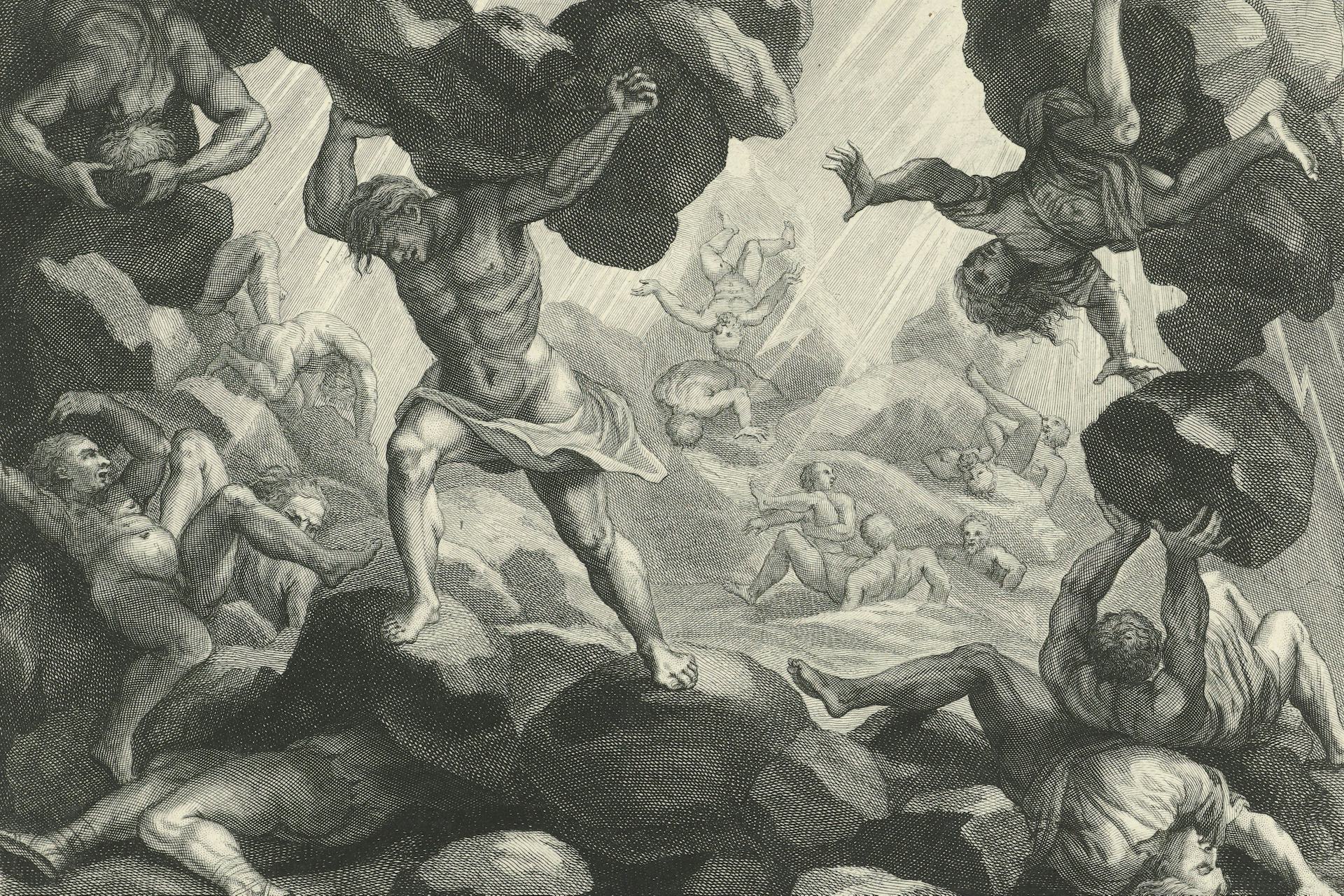Coeus

Defeat of the Titans by Philip van Gunst, after Giulio Romano (ca. 1685 - 1732).
RijksmuseumPublic DomainOverview
Coeus, son of the primordial deities Gaia and Uranus, was one of the original twelve Titans of Greek mythology. With his sister and lover Phoebe, Coeus fathered the goddesses Asteria and Leto, both of whom were courted by Zeus. Leto went on to give birth (by Zeus) to the Olympians Artemis and Apollo. Following the war between the Titans and the Olympians, Coeus and the other Titans were imprisoned in Tartarus.
Etymology
The etymology of the name “Coeus” (Greek Κοῖος, translit. Koîos) is mysterious. In fact, he may have simply been an invention of early Greek poets who wanted to raise the number of Titans to twelve, the same as the total number of Olympians.[1]
Pronunciation
English
Greek
Coeus Κοῖος (translit. Koîos) Phonetic
IPA
[SEE-ehs] /ˈsiːəs/
Attributes
Coeus’ attributes were never explicitly defined. However, like the other male Titans, he appears to have been viewed as fantastically strong and ruthless.
Family
Coeus was the son of Gaia, the great earth mother, and Uranus, the father of the heavens.[2] His siblings included the other Titans—Crius, Cronus, Hyperion, Iapetus, Oceanus, Thea, Rhea, Themis, Mnemosyne, Phoebe, and Tethys—as well as the Cyclopes and the Hecatoncheires.
Family Tree
Mythology
As with many secondary Titans, Coeus is rarely mentioned in Greek texts. In Hesiod’s Theogony, for example, he is named only twice: once as a child of Gaia and Uranus,[4] and again as Phoebe’s consort and the father of “dark-gowned” Leto and Asteria “of happy name.”[5] Elsewhere in Greek literature, Coeus appears almost exclusively in lists of Titans, with no particular myths of his own.[6]
There is one slightly more substantial tale involving Coeus in Valerius Flaccus’ Argonautica, a Roman epic of the first century CE. Here, Coeus is said to have attempted to escape Tartarus, where he and his Titan brethren had been imprisoned by Zeus after losing the Titanomachy. However, this would-be prison break ended in failure:
Coeus in the lowest pit bursts the adamantine bonds and trailing Jove’s fettering chains invokes Saturn and Tityus, and in his madness conceives a hope of scaling heaven, yet though he repass the rivers and the gloom the hound of the Furies and the sprawling Hydra’s crest repel him.[7]
While this unique excerpt offers a tantalizing glimpse into a forgotten mythological tradition, it may have been little more than a fantastical story—one created to fill the void in our understanding of Coeus and the Titans as a whole.
Adding to the mystery, there were apparently traditions in antiquity in which Zeus eventually released the Titans (including Coeus), but those texts have been lost.[8] Ultimately, there is little information on the mythology of the Titans in our surviving sources for Greek mythology.
Pop Culture
Coeus makes an appearance in The House of Hades, the fourth book in Rick Riordan’s The Heroes of Olympus series. In this iteration, “Koios” is a Titan anxious to reclaim the cosmos from Zeus and the Olympians.